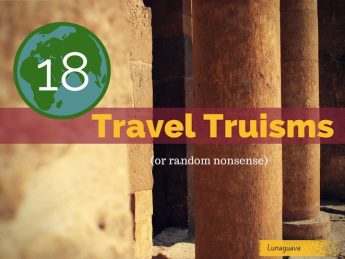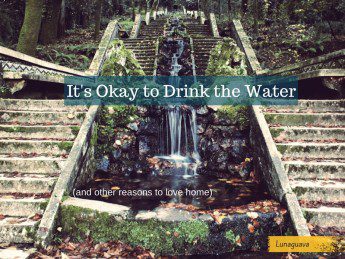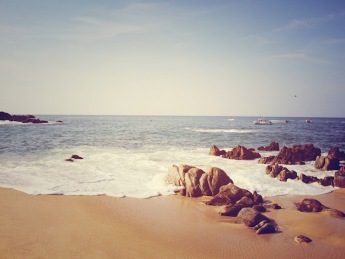There Is No Paradise
White sandy beaches. Palm trees. Azure skies. An infinity pool overlooking a turquoise ocean. Maybe a cocktail with an umbrella in it, pink and buoyant. Paradise.
Is it?
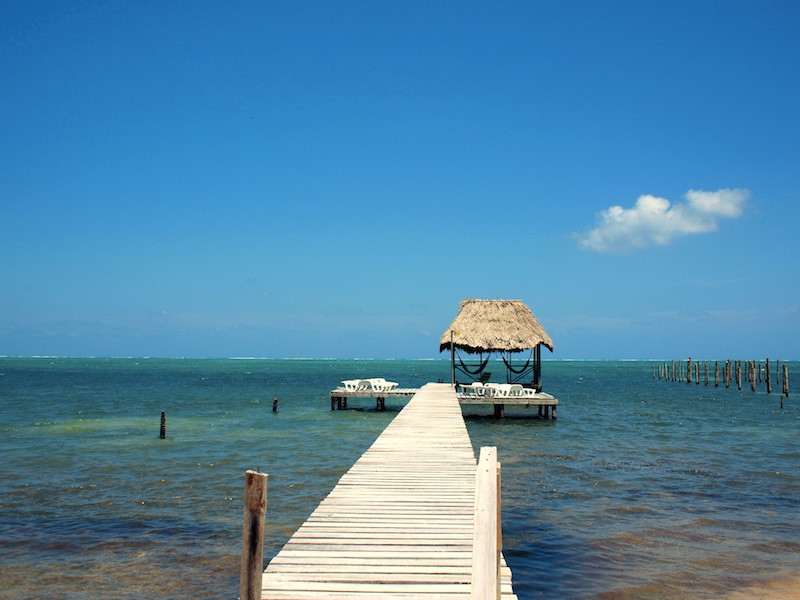
Although the versions of holiday paradise vary, sometimes involving mountains and snow or picturesque temples and balloons, the most readily recognizable is the one associated with beaches, bikinis and buffets. We’ve all seen the postcards – I’m sorry, I meant the Facebook status updates and filtered Instagram photos – of friends and/or family idling by the sea, smiling under the sun while waiting for the third refill of the morning.
Destination brochures display heavily edited glimpses of a world without issues, apart from the pressing choice between all-inclusive or breakfast-only. They have a glow to them that can only be described as paradisaical, a probable keyword found in a marketing strategist’s mind. Paradise sells, and the idea of a bite at a heavenly piece of Earth is enticing to all of us.
In the end, it’s all fine and dandy, but I don’t like the word “paradise”. I refrain from using it whenever I’m lucky enough to find myself in a place which I recognize as having all the characteristics associated with it, even if that’s the first word popping up in my mind.
My semantic scruples have nothing to do with snobbery (idiocy is a contender though) but everything to do with context.
In the Gulf of Thailand, two hours away from the southwestern shores of Cambodia, lies the island of Koh Rong. We visited in 2009, when the island was slowly being discovered by more than just misanthropes and local fishermen. Koh Rong featured the most pristine waters we had ever seen, the whitest, softest beach we had ever set foot in and the most ascetic lifestyle we had ever experienced.
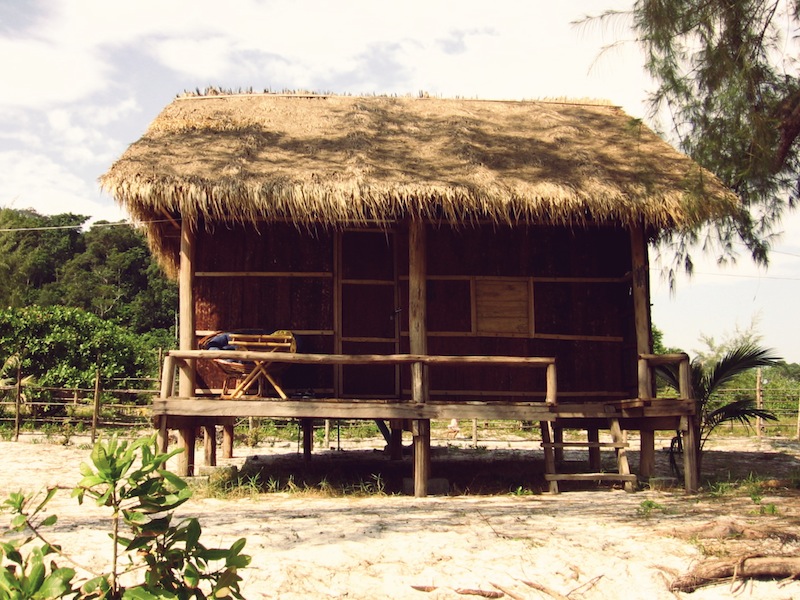
Our luxurious hut (with verandah!)
Our wooden hut had one old mattress on the floor, a semi-ravaged mosquito net and an outdoor toilet. Lights went out every day at 7 pm. Once the generator was shut down, the eerie silence was only interrupted by the lapping of the waves and the occasionally disturbing calls of tropical animals. There was nothing to do but sit, talk, swim, eat and read a book. Internet? You gotta be kidding me…
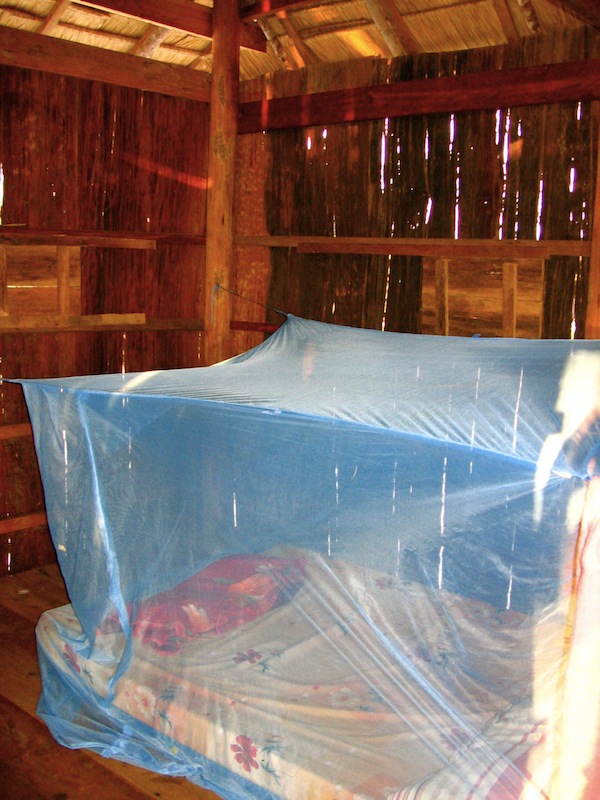
Paradise?
The days we spent there hold some of the most peaceful, liberating moments of my life (the fact we nearly died battling the waves of Koh Rong is beside the point). It was probably the closest I’ll ever get at a chance to enter paradise – and yet I would never call it so.
The context here is that we were enjoying the serene balm of a gorgeous ocean as people around us struggled to have enough food on the table, in a country which only 30 years ago had endured a fratricide war responsible for the obliteration of 2 million human beings.
As we travel the world we must come to terms with the beauty and the ugliness of what surrounds us. The most stunning landscapes on our Earth are quite often scarred by hidden, and occasionally blatant misery. The more covert an issue is (child trafficking, corruption, sex tourism), the more easily it can be sidestepped and ignored. However, poverty and indigence can only be disregarded if one makes a conscious decision not to look.
As travelers, we are unable to eradicate or somehow solve these issues. We can alleviate tiny specks of suffering, either by the power of our wallets (buy at local markets, folks!) or by not being rude, inconsiderate nincompoops, but the general problem persists – and not just in far-flung exotic countries, but also at our own doorsteps. Unfairness has been around forever, and will still be around until the last one of us scatters into a cloud of atoms.
I’m not a saint and distrust those named as such. Although aware of the issues permeating the countries we visit, I hardly let them shatter my wonder and enjoyment of beauty and human kindness – not to mention food. Hence, I can say Koh Rong was, during those long days of early November, a haven for the soul and a resplendent reminder of a simpler life – but I wouldn’t call it paradise, mostly out of respect for those who, for better or worse, just call it home.
But all of this is only one part of the context – the one I am unfortunately too inarticulate to properly formulate.
Another, more prosaic part has to do with the idea of paradise as a place, and how those ideas differ from person to person.
The Koh Rong of 2009 was a secluded island ideal for those wishing to escape the humdrum of mass tourism and willing to rough it out in close proximity to nature. The Koh Rong of 2013 is more welcoming to casual travelers, equipped with better infrastructure and even selling itself as paradise – undoubtedly because so many of those who visited referred to it that way.
I have no problems with those who call it paradise. After all, we are all different and, more relevantly, want different things. In my mind, I equated the Koh Rong of 2009 with an idea of paradise, but a lot of tourists would probably call it a personal hell. On the other hand, the Koh Rong of 2013 is more developed and seems to attract an increasing amount of visitors. They too will probably refer to it as paradise.
However, my question is: whose paradise?
The locals would probably call it home, or the place where they work. Nice views, lovely weather, but hardly an idealized escape from the mundane. So the current tourists call it paradise, whereas those who visited before, like us, would maybe call it spoiled – the place has changed so it would accommodate other people’s notions of bliss.
Koh Rong is now expected to become a huge resort, sporting golf courses and the whole shebang associated with luxury travel, although the details are still a bit murky. Seeing how much money an expensive idea of paradise attracts (Maldives, anyone?), I believe it’s not a matter of “if” but “when”. The visitors of today will cry foul for the destruction of their paradise, while the new sparkling jet-setters will have another select paradise to add to their holiday portfolio.
What some will certainly call paradise found, others would call paradise lost. Nonetheless, my rambling point is that there was no paradise to begin with. Paradise belongs to the world of ideas and religion (also not a very inclusive notion), like castles in the sky, unicorns or world peace. We have earthly beauty and awe everywhere we look, but it’s always surrounded by imperfections and the cruel whims of nature and people.
Whenever in the presence of a particularly breathtaking landscape, I’m happy to merely describe it as extraordinary or even idyllic – but I don’t expect “Welcome to Idyll” to become a marketing slogan anytime soon.
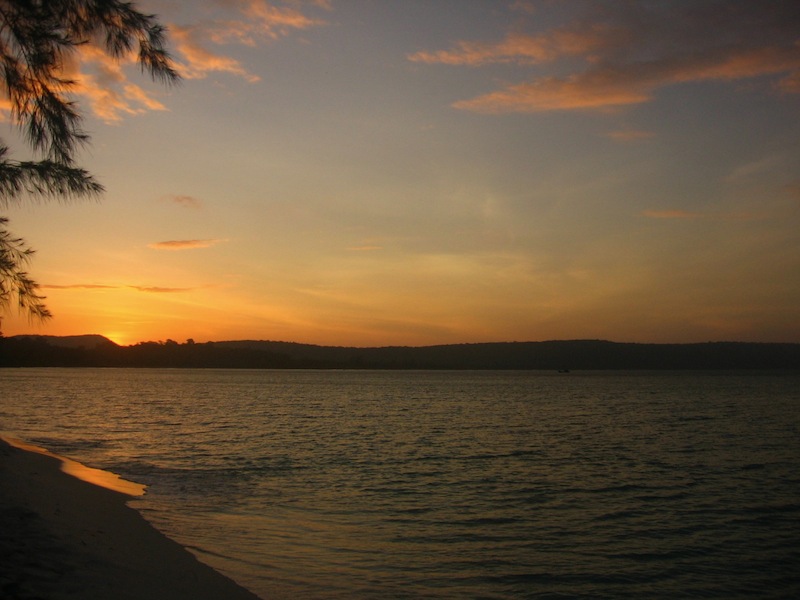
Koh Rong sunset

